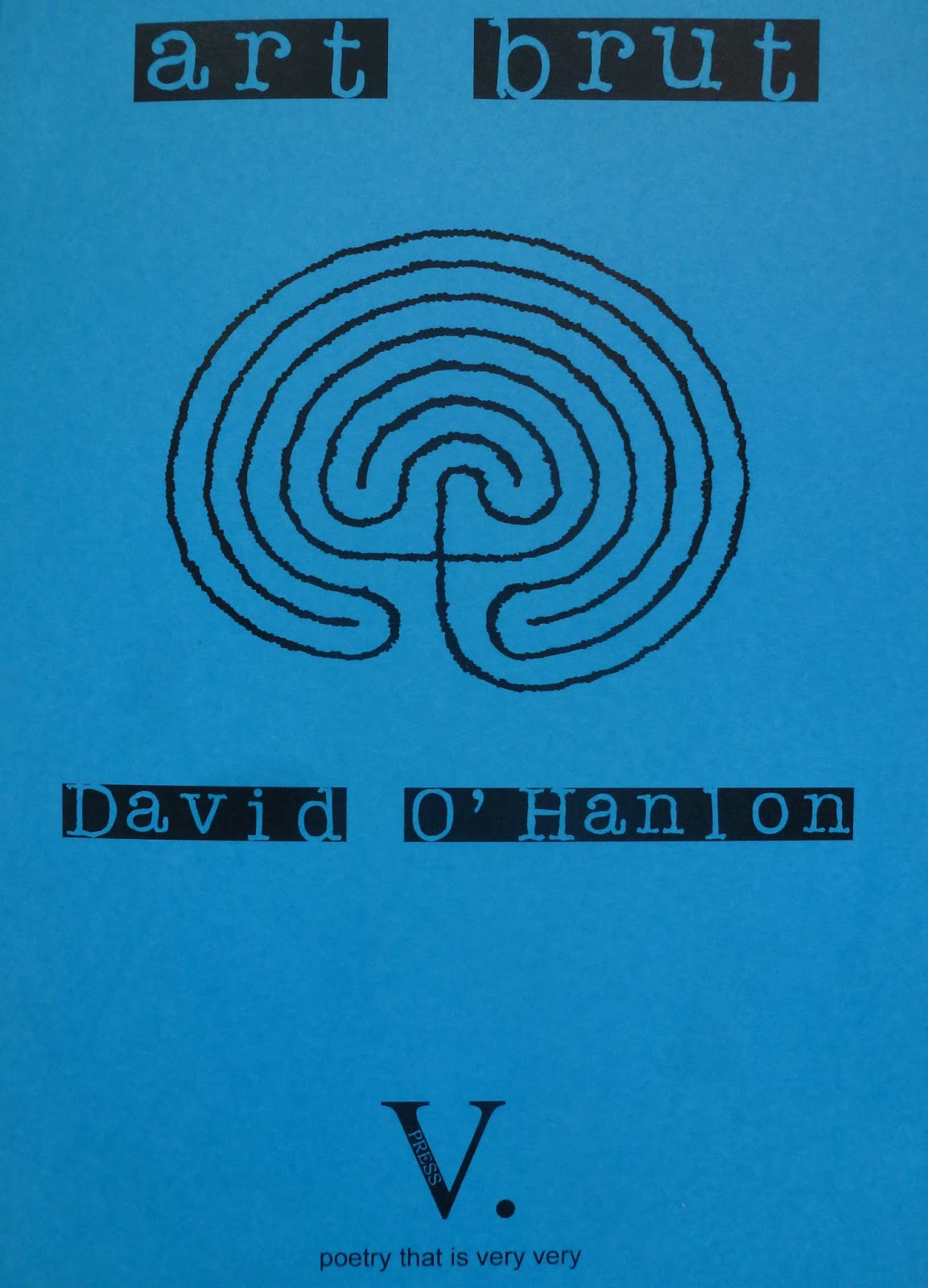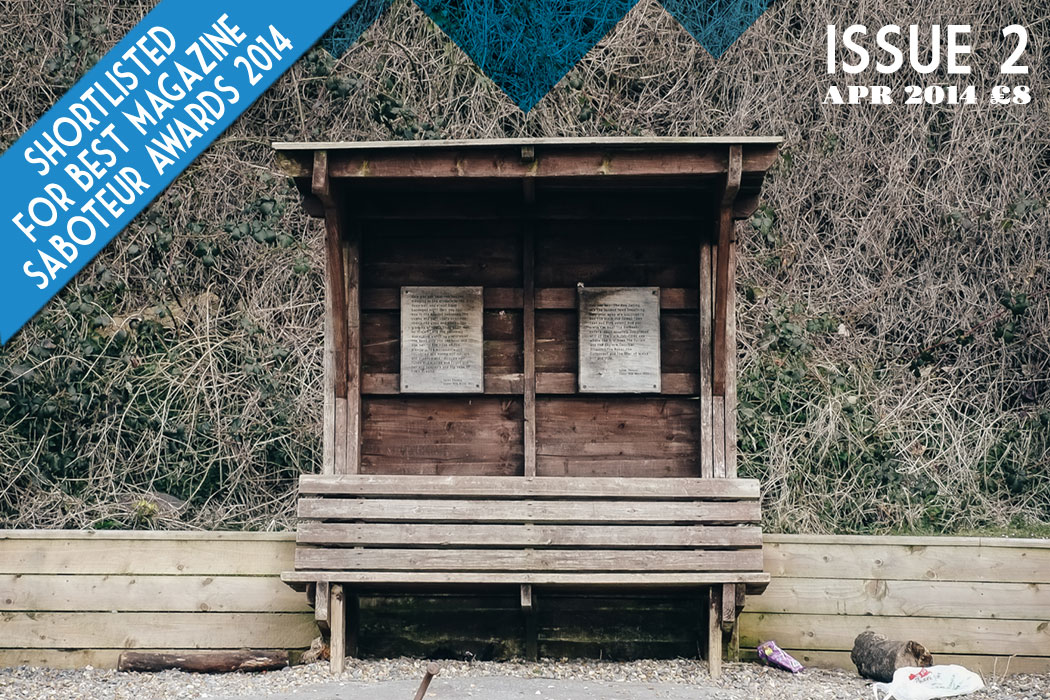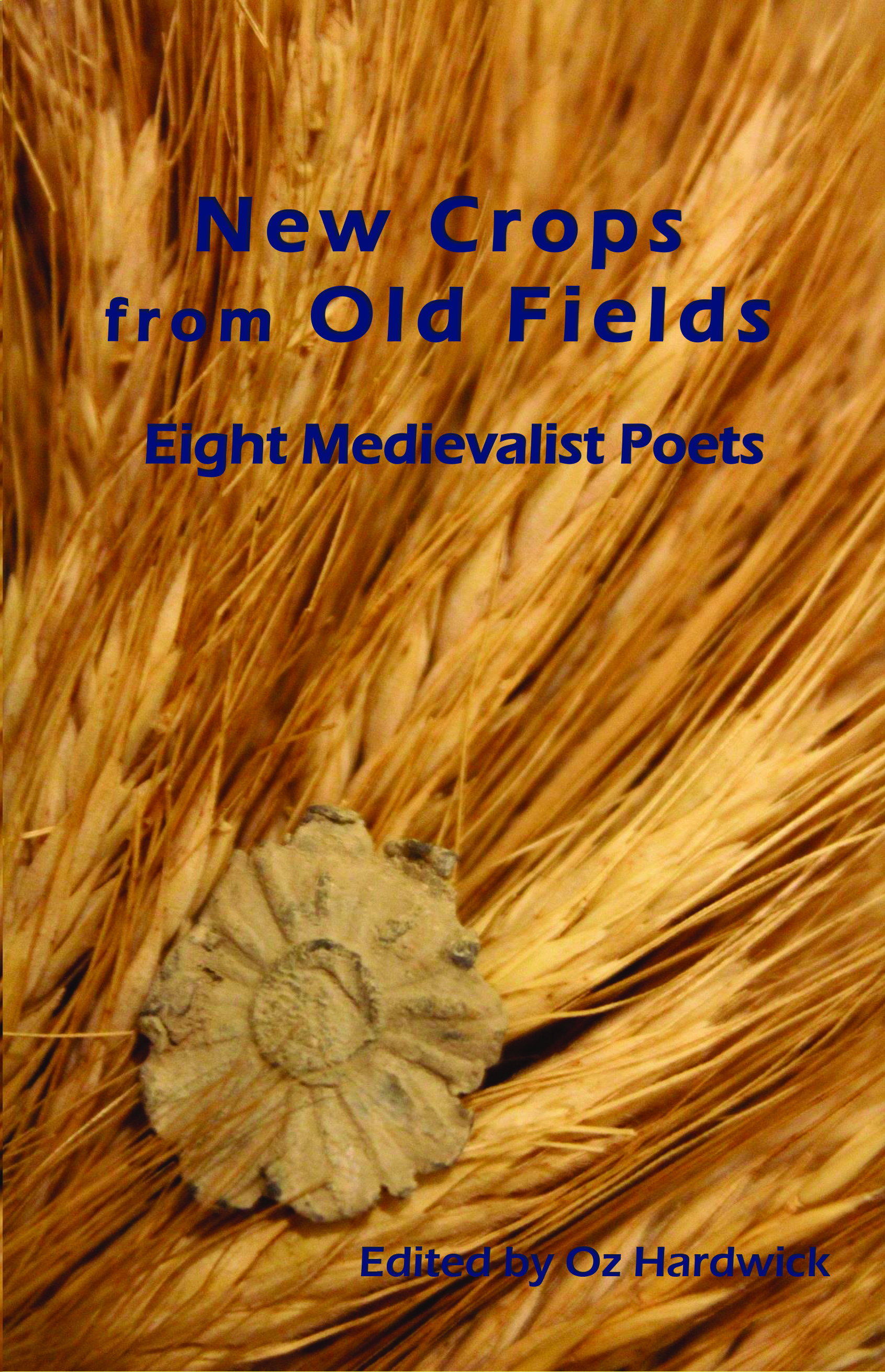Art Brut by David O’Hanlon
– Reviewed by Bethany W. Pope –
David O’Hanlon’s Art Brut is powerful and uneven. At their best, the poems have the lyrical intensity of Bobby Parker or Dan Duggan; at their worst, they are more like pages torn from the notebook of an intelligent sixth form student. I opened my copy with high expectations. The subject of childhoods spent in institutions is a strong and heady one that hasn’t been deeply enough explored, and I was taken by the cover-image of a human brain, depicted as the kind of maze you find on children’s placemats. I’d previously encountered O’Hanlon’s work on Ink, Sweat, and Tears (one of my favourite poetry websites), so I had some inkling of the calibre of his work. However, the poem that I’d read was not included in this pamphlet, and while half of the poems met the mark that I expected, the rest did not.
The title poem encapsulates in microcosm the qualities of the whole. The first line is a cliché: ‘So, after my swirling black abyss, a work / still in progress’. Reading that line was about as uncomfortable as flossing with wool, but then O’Hanlon describes a drawing made by a mentally ill girl, a fellow patient in the facility, and my aesthetic pain was eased by eerie beauty. He writes:
poking their heads up out from the grass
five earthworms, five pink splodges,
more finger than worm, with blobbed eyes
and there’s-no-bad-in-life smiles.
It’s not often that an artist captures an image that bears despair and resurrection at the same time. The worms are symbols of rot, but they are also a dead hand climbing back into life. He follows this with a few stanzas of italicised doctor’s notes, spelling out a message which should have been subtextual, teased out by the reader:
Worms usually have quite negative associations,
particularly death, but yours are content,
blissful. Do you think maybe there’s
something in that, a desire to make
positives from even the worst situations?
It would have been better if he’d let the image stand for itself. I don’t think that he trusts his readers to take a hint, or himself to really give it. That’s a shame.
O’Hanlon is at his best when he’s describing human behaviour. Children are children, even when they are sick. In ‘Contained’ he describes a semi-mythical, probably real, padded room which may or may not exist, in the basement of the hospital. These are often called Calming Rooms, or Quiet Rooms, but that’s not the term he uses. The young patients know about themselves, their own illnesses, primarily through pop-culture. Even though they’re living the truth of it they still believe in celluloid depictions of raving, foam-lipped lunacy. O’Hanlon says, ‘We begged to be sent down there’ because they wanted to:
scream where lunatics had screamed
When lunatic was still the word for us.
Who wouldn’t want to dress up in a straight-jacket,
howl and jabber, breathe centuries-old madness
and play at being Renfield?
O’Hanlon knows that children and adolescents will compete over absolutely anything, regardless of their context. In ‘Versus’, patients form a hierarchy of hurt, gaining cred from the severity of their symptoms and treatments:
He’s on sleeping meds: melatonin, nothing.
You’re on tranquillisers.
What you get isn’t even sleep.Once, sure, he had his stomach pumped
but you’ve been technically dead
three times.Ok, he was on one-to-one for longer.
A lot longer.
You’ll give him that.
One-to-one means that a patient is paired off with a single member of staff. This usually means that the patient is suicidal and must be constantly watched.
There is a fashion right now, some scummy idea floating of the surface of the word-pool we all drink from, which says that nothing must ever be taken too seriously, that even the darkest narratives must contain at least a few jokes, as much for the sake of our collective sanity as the ease of our reading. I think that such purposeful dulling of the edges can really weaken the heft of a poem. Some stories are dark. We need to feel them. In the second-to-last poem in the book, ‘Things I Left Behind’, O’Hanlon lists the belongings that he forgot and the events he grew out of:
A bin full of posters
and cuttings. My stash
of broken things
It’s a poignant list, but he diminishes it in the final stanza by reducing his struggle, and his loss, to a bad joke:
Two divots in the door.
A small piece of my soul.
(No, I’m just fucking
with you on that one.)
I think that David O’Hanlon has skill, talent, and a clear vision. Those are the essential things. He needs to develop his confidence. He needs to be willing to let the readers do some of the work, for the sake of the poems. I think that if he does this, his next book will be something to watch out for…





